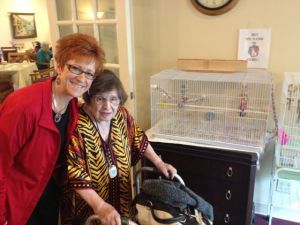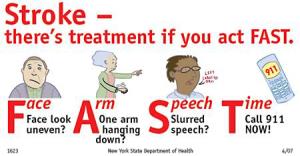
by Diane Masson | May 3, 2015

Mean Mom, Nice Mom and Dementia
Here is a painful subject that I am going to bring up. Hundreds of people have reached out to me in the last week since my mother passed. So many of them shared a story about their own mom passing. Some were wonderful experiences that they will treasure and others were not. Sudden deaths are very hard. Every personal death I have experienced in my life was sudden, except for my mom’s death. You can read about my mom’s passing experience HERE.
You either had a loving caring parent or you did not. This article is for those who did not.
Many vulnerable sons and daughters were abused by either their mom or dad, sometimes both. We live in world that accepts dysfunctional families now. Family abuse that was hidden in the 1950’s and 1960’s can now be accepted in the mainstream. There are resources and counseling available so abused children (who have become adults) can acknowledge the abuse and move on.
My mother was abusive to all her young children. You can read my article MEAN MOM, NICE MOM and DEMENTIA HERE.
A wonderful counselor changed my life for the better and his recommendation is explained in my article MEAN MOM, NICE MOM and DEMENTIA HERE. My mom and I enjoyed over 20 years of a good adult relationship. I forgave her. Many of you know I have advocated for my mom’s care needs for the past 10 years.
So what happens if an abused adult son or daughter still has unresolved issues at death with mom? Do they go to the funeral? Do they have a free pass not to attend?
What have you encountered?
It seems ironic now, that my new book is dedicated to my mom. Writing this blog has been therapy for me over the last three years. After sharing numerous stories about my mom, several senior living people said you should write a book to help other seniors and their families. So I did and “Your Senior Housing Options” was published recently.
I love you mother and hope your stories peppered through the book can help others learn their options and plan ahead. So many seniors fight to stay home and then a sudden crisis causes them to lose their ability to choose like my in-laws did. What person in their right mind wants to be put someplace? My in-laws have no choices now. Seniors and their families should study the options and costs now. The greatest gift my mom ever gave me was to plan ahead at age 75, so her transition to assisted living was a good one. She recently passed at age 92 in skilled nursing care.
Diane has worked in senior housing for 17 years and is the regional marketing director for two debt-free Continuing Care Retirement Communities in Southern CA (Freedom Village in Lake Forest and The Village in Hemet). Her first book “Senior Housing Marketing – How to Increase Your Occupancy and Stay Full,” is being utilized by senior housing professionals across the country.

by Diane Masson | Apr 19, 2015
 If a senior living sales person or ANYONE said to you, “We are half sold out,” what would be your first thought? I bet, it would not create urgency for you to act now.
If a senior living sales person or ANYONE said to you, “We are half sold out,” what would be your first thought? I bet, it would not create urgency for you to act now.
When I was considering buying comedy tickets at the Improv last night, I inquired if the event was already sold out. The salesperson divulged, “We are half sold out. Getting tickets should be no problem. We are really surprised that only half the tickets have sold two days before the event.” I thought, oh, this comedian is not as popular as I thought. I will wait to buy my tickets. I was actually disappointed that the salesperson did not create urgency for a famous comic.
It was shocking to me that she would be so forth coming and I walked away disheartened. I told her that I would come back later and did. But I decided to not buy the tickets, because apparently I could just show up in a couple of days and buy the tickets on the day of the event. Her over sharing will continue to affect sales until a manager catches it.
The comedy club sales person over shared. What could she have said instead? “Gosh, let me check, I might be able to get you some tickets. It’s very unusual to have this comic coming to our location. How many tickets would you like?” I would have bought the tickets instantly.
Remember that famous Beanie Baby craze of the 1980’s? It was all about urgency for stuffed toys. Yes, I am the proud owner of 100 Ty bears and still like them.
What are your senior living sales people saying? Is your independent living, assisted living, or skilled nursing sales people saying, “I have quite a few rooms to choose from…”? Cough, cough… You will never fill up with this language. Everyone wants something that they can’t have. There is such a thing as divulging too much information. If a family is given the opportunity to put off the decision to move, they will. Ninety-six percent of seniors end up staying in their own home and not moving. Why encourage them to stay home? How about creating a solution for their needs and offering them the perfect apartment in your senior living community?
Every apartment is unique in some respect, such as the floor plan, the view or where it is situated in the building. Create value for every single senior living apartment. Teach urgency and watch your occupancy rise. I go into a lot more detail in my book, “Senior Housing Marketing – How to Increase Your Occupancy and Stay Full.”
Senior living communities have heavy attrition these days, so it can take two or three more move-ins than move-outs to move up one percent in occupancy. It’s always nice to see the arrow sliding up to 100% full.
So have you encountered too much honesty like me? Do you think it is stupid?
Everyone of us knows at least one senior that needs to move now. Here is a resource to help you or them make an informed decision. Diane Twohy Masson’s new guide book for seniors, “Your Senior Housing Options,” is available on Amazon.com with a 5-star rating. It reveals a proactive approach to navigating the complex maze of senior housing options. It will help you understand the costs and consequences of planning ahead or waiting too long. Learn firsthand tips from someone who is currently advocating for three aging parents.
Among the thousands of seniors she and her teams have assisted in finding the right senior living community, the most difficult case has been helping her own parent. Masson spent two years exploring senior housing options with her mother before finding the ideal Continuing Care Retirement Community for her. After eight years in this independent living setting, she helped her mother transition into an assisted living community. Seven years later, even as a senior housing expert, Masson struggled with the decision to move her mother into a skilled nursing community.
More related articles by Diane can be found at Tips2Seniors.com or like Tips 2 Seniors on Facebook.
Diane Twohy Masson has worked in senior housing since 1999. She is an award-winning certified aging services professional and the author of Senior Housing Marketing: How to Increase Your Occupancy and Stay Full for senior living professionals.

by Diane Masson | Apr 12, 2015

Diane’s Mom Driving -Illustration from the new resource guide “Your Senior Housing Options.”
What about you? Does one of your loved ones have dementia and still drive? Dementia drivers are jeopardizing other citizens walking in crosswalks and driving.
My father-in-law was driving with a diagnosis of macular degeneration. He justified his actions by only driving in the daytime and limiting himself to a 5-mile radius to run errands and go the doctor. As his dementia progressed he got lost driving home within this radius. He chose to give up driving on his own.
A friend told me about my mother driving several years ago. They said, “I saw your mom driving today, she can’t even see over the steering wheel. She is looking through the steering wheel in order to see the road.” I was horrified. This was completely unsafe. I still vividly remember the last time I drove with my mom. She was straddling two lanes (on the same side of the road). She said, “Diane, I know this looks bad, but I know exactly what I am doing.” I was terrified. It was the beginning of her dementia.
A resident of a senior living community drove into another resident’s balcony. As he was parking the car, the senior hit the gas instead of the brake. After backing up, he made the same mistake again and rammed the balcony a second time. Afterwards, he was disoriented and could not remember how the accident happened or why he hit the gas twice. He did not give up his car keys after this incident. The resident whose balcony was destroyed requested to have the parking place right outside his apartment home, because he did not want a repeat performance.
All these senior driving circumstances have made me a better defensive driver. Many people are concerned about teenage drivers, but what about seniors with dementia? No senior wants to give up the keys to the car and lose their independence. Senior housing choices that provide transportation can be a good choice for a senior who should not be driving.
Do you feel that a son or daughter should make a mom or dad give up the car keys if they are putting others at risk? What will be the trigger event to make the decision of no more driving – hitting a curb, a fender bender, or a fatal car accident?
What should the doctor’s role be in this process? Have you had the “car talk conversation” with yourself, your spouse, or your parent? How did it go? What about senior living providers who have residents that are driving unsafely in their parking lots? What did you do?
Seniors, Boomer children, spouses, family members and caregivers are desperate to learn how to truly differentiate good senior housing from mediocre at best. Diane Masson’s new book will answer these heart-wrenching issues in an easy, simple, story telling format with humorous illustrations. She has represented multiple styles of senior housing for 16 years and has sought all levels of senior housing care for her mother and stubborn German in-laws.
“Your Senior Housing Options” is a new resource book available on Amazon.com with a 5-star rating. It offers a step-by-step guide to the options, including staying home. Don’t wait until you’re in a health care crisis like author Diane Masson’s in-laws. Learn how to plan ahead like Masson’s mom. Research your future choices NOW to avoid being “put” somewhere, or having decisions made for you by others.
For weekly tips and advice go to www.Tips2Seniors.com and learn more from author and senior housing expert Diane Twohy Masson.

by Diane Masson | Apr 5, 2015
 Many seniors believe Medicare will take care of everything. It is an unfortunate perception that is inaccurate. Two days ago, I was presenting senior living options to a group of seniors. One senior raised their hand and asked how Medicare fit in the picture of paying for senior housing.
Many seniors believe Medicare will take care of everything. It is an unfortunate perception that is inaccurate. Two days ago, I was presenting senior living options to a group of seniors. One senior raised their hand and asked how Medicare fit in the picture of paying for senior housing.
Here was my answer, “You have worked hard your whole life to have Medicare insurance. Most seniors have Medicare, a HMO and supplemental insurance. These will help you pay for doctors, hospital stays and up to 100 days of skilled nursing care (if you have a qualifying hospital stay). Medicare will not pay for any long-term care such as support in an assisted living community, long-term skilled nursing care or memory care. (I know this was a short version of a long answer.)
Many seniors were surprised…here is some info from Medicare:
“At least 70 percent of people over 65 will need long-term care services and support at some point. ‘Medicare and most health insurance plans, including Medicare Supplement Insurance (Medigap) policies, don’t pay for this type of care, sometimes called ‘custodial care.’ Long-term care can be provided at home, in the community, in an assisted living facility, or in a nursing home. It’s important to start planning for long-term care now to maintain your independence and to make sure you get the care you may need, in the setting you want, in the future.” This is a quote from the official Medicare and You 2014 Handbook, page 63.
Have you encountered this misperception that Medicare will pay for long-term care?
Diane Twohy Masson’s new guide book for seniors, “Your Senior Housing Options,” is available on Amazon.com with a 5-star rating. It reveals a proactive approach to navigating the complex maze of senior housing options. It will help you understand the costs and consequences of planning ahead or waiting too long. Learn firsthand tips from someone who is currently advocating for three aging parents.
Among the thousands of seniors she and her teams have assisted in finding the right senior living community, the most difficult case has been helping her own parent. Masson spent two years exploring senior housing options with her mother before finding the ideal Continuing Care Retirement Community for her. After eight years in this independent living setting, she helped her mother transition into an assisted living community. Seven years later, even as a senior housing expert, Masson struggled with the decision to move her mother into a skilled nursing community.
More related articles by Diane can be found at Tips2Seniors.com or like Tips 2 Seniors on Facebook.
Diane Twohy Masson has worked in senior housing since 1999. She is an award-winning certified aging services professional and the author of Senior Housing Marketing: How to Increase Your Occupancy and Stay Full for senior living professionals.

by Diane Masson | Mar 29, 2015

Act FAST
My sister-in-law witnessed my father-in-law, Bill, having a mini-stroke (TIA) this week. What a heartbreaking story. She was sitting with him in the living room and noticed his face droop on one side. Then his speech became garbled. It was over in two minutes and he could talk fine again. He had no idea it happened.
She was understandable traumatized and wanted to talk about it. My husband and I are 1000 miles away and applaud her efforts to care for my father-in-law in her own home till he passes. We both think she is a saint.
Through my Internet research it says a TIA is a mini-stroke. TIA’s can be warnings that a bigger stroke can be coming. In my mom’s case, she has had so many TIA’s that she has been diagnosed with vascular dementia. I have never personally witnessed a TIA with my mom.
I guess you could say we were lucky it was only a TIA with Bill. Unfortunately, my father-in-law is now on hospice. Hospice is comfort care, so the goal is no hospitals or ambulances if at all possible.
Every caregiver, family member and senior living professional should know the signs of a stroke and what to do. Stokes can cause permanent damage. If you get someone to a hospital in time, it can reverse the affects of the stroke. Go to www.strokeassociation.org to learn more. They say you should act FAST! FAST stands for: face drooping, arm weakness, speech difficulty and time to call 911.
Have any of you encountered or witnessed a TIA or stroke?
Diane Twohy Masson’s new guide book for seniors, “Your Senior Housing Options,” is available on Amazon.com with a 5-star rating. It reveals a proactive approach to navigating the complex maze of senior housing options. It will help you understand the costs and consequences of planning ahead or waiting too long. Learn firsthand tips from someone who is currently advocating for three aging parents.
Among the thousands of seniors she and her teams have assisted in finding the right senior living community, the most difficult case has been helping her own parent. Masson spent two years exploring senior housing options with her mother before finding the ideal Continuing Care Retirement Community for her. After eight years in this independent living setting, she helped her mother transition into an assisted living community. Seven years later, even as a senior housing expert, Masson struggled with the decision to move her mother into a skilled nursing community.
More related articles by Diane can be found at Tips2Seniors.com or like Tips 2 Seniors on Facebook.
Diane Twohy Masson has worked in senior housing since 1999. She is an award-winning certified aging services professional and the author of Senior Housing Marketing: How to Increase Your Occupancy and Stay Full for senior living professionals.





